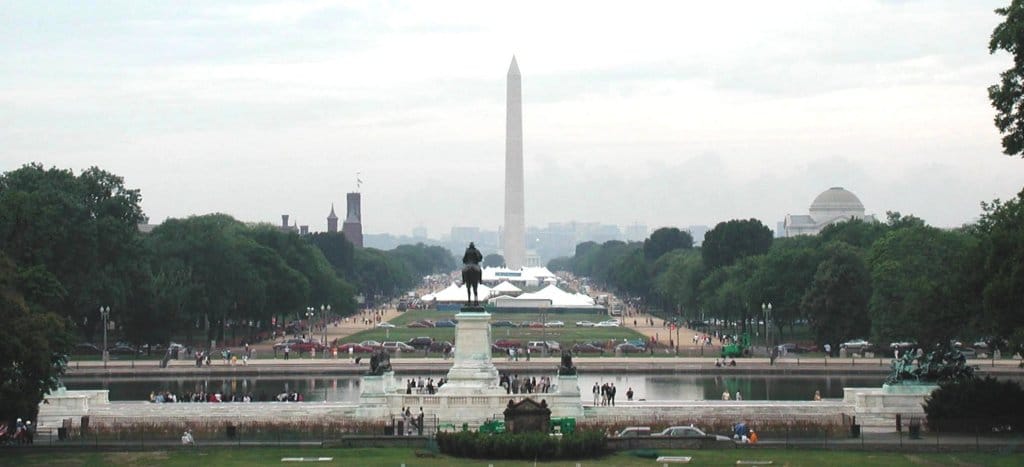Is trespassing on a landmark a federal offense? Currently, the answer is no—but that could soon change if certain legislators on Capitol Hill have their way.
In the wake of several recent high-profile trespassing incidents in New York City—for example, the German artists who replaced American flags with white flags on the Brooklyn Bridge, and a 16-year-old who climbed the spire of 1 World Trade Center to take a “selfie”—last month, Senator Charles Schumer introduced a bill in Congress that would make such actions a federal crime, accompanied by stiffer penalties.
Currently, the offense of trespassing remains under local and state jurisdictions. Under New York state law, the trespassing incidents mentioned above can theoretically result in a sentence of up to a year in jail. However, if trespassing on a landmark becomes a federal offense, harsher penalties can be assessed for these actions. Under Shumer’s bill, the abovementioned incidents would carry a penalty of up to five years in prison.
While many would no doubt welcome the passage of such a bill, it naturally would also raise a series of complex questions, such as: What constitutes a landmark? Should it be a federal crime to trespass on any/all landmarks, or only specific ones? Does upgrading the crime of trespassing to federal offense cause jurisdiction issues, taking power away from the state and local governments? Where are the dividing lines between trespassing at the local or federal level, or would they overlap?
If current timetables hold, Schumer’s bill could be considered in Congress early next year, and could become law by as early as spring 2015. Until then, the Federal Criminal Law Center will be watching the progress of this bill with interest.


